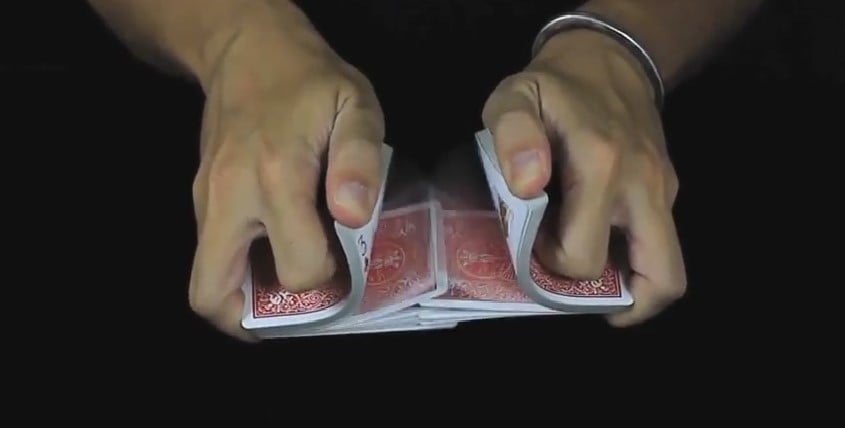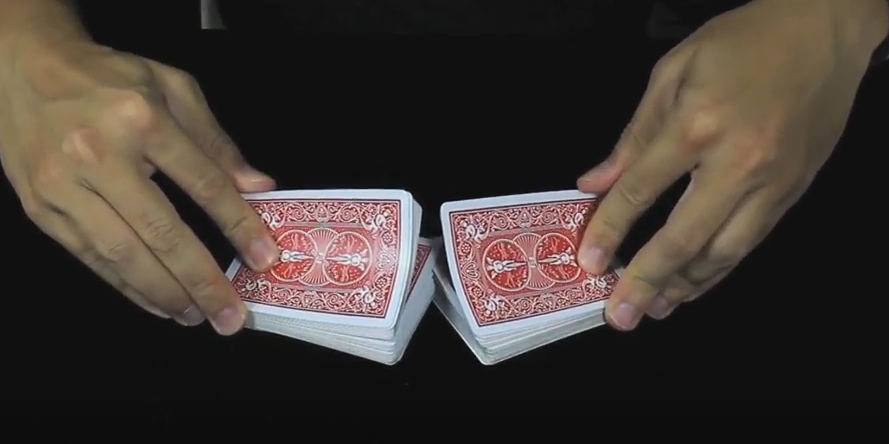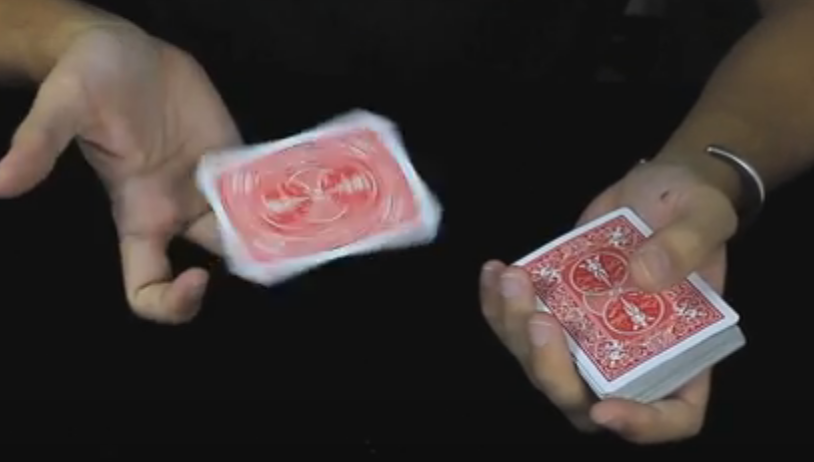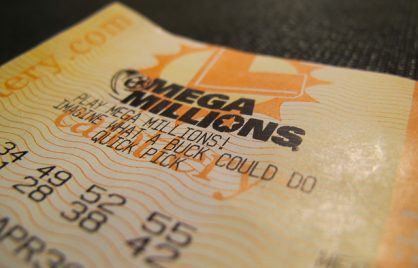How to Shuffle Cards Like a Pro
Nothing shrieks “noob” more stridently than a man who can’t shuffle a deck of cards to save his life. We’ve all seen him at the poker table, the poor sap, fingers, and thumbs failing, as he tries in vain to blend one-half of the deck with another while chips spill and cards fly. Or that other guy who just sits there motionless, squinting nervously at the deck in front of him like it just fell from space. The clumsy or timid shuffler becomes the instant mark at the table, and players will target his chips like sharks on a feeding frenzy.
Sounds familiar? Wait, what? You mean you’re that guy? That’s you? OK, don’t panic because we can help. In fact, we’ve enlisted the help of Spanish Magician Miquel Roman, and he’ll have you up to speed in no time.

Check out the Video
Miquel is an expert in “cardistry,” or the art of mesmerizing card manipulation. What he does for a living is extremely complex and takes literally years of practice, but don’t worry, because mastering simple shuffling techniques is actually really, really easy.
Check out Miquel’s video as he takes you through seven shuffle maneuvers, some of which we’ll look at below, explaining the techniques in clear and simple steps. It’s your chance to learn from the master!
And remember, the beauty of learning how to shuffle like a pro is that it’s nothing like learning to play the piano. Unlike a piano, a deck of cards is perfectly portable, which means you can practice wherever you are and at any time you have a free moment. You can sit there watching TV while shuffling to your heart’s content, and before you know it you’ve mastered a move without even trying.
Shuffle Cards Like a Magician
The In-the-Hands Riffle-Shuffle. It might sound like a dance from the 1950’s but it is actually the shuffle favored by close-up magicians everywhere. The reason for this is probably because it looks and sounds so good, and it’s performed, as its name suggests, in the hands, so it can be executed while you’re standing up or walking around.
We’ve all seen it: the cards are cut into equal halves and then riffled together. The shuffler then forms a bridge with the combined deck before the cards cascade like a waterfall into a neat pack. But how is it done? Well, it’s easier than you think, and Miquel is on hand to explain in simple terms where to grip the cards and position your pinkies and thumbs in order make this most satisfying of shuffles really work.

Shuffle Like a Pro Dealer
Classic Table Shuffle. If you’ve only time to learn one shuffle from Miquel’s vid, though, make sure it’s the classic table shuffle. This is the shuffle performed by professional dealers everywhere, and the one that’s sure to make you look like you know your way around a poker table.
Two half decks are split and riffled together at the corners before being squared into one neat pack. It’s a move that, with practice, can be performed with increasing speed and efficiency. Professional dealers will usually perform this action at least three times, which is considered the optimum amount to efficiently mix up the deck. Any fewer won’t cut it.
Now you’ve mastered this shuffle, it’s probably time to learn some chip tricks too, just to give the impression that you were born at the poker table, although that’s a different video for another day.
A move that is often used by dealers to finish off the classic table shuffle with a flourish is a shuffle that Miquel calls “cool and fast casino table cards.” This is essentially a maneuver that cuts the deck multiple times in one elegant, cascading move. It looks awesome and is super-easy to learn.

Shuffle Like a Harlem Globetrotter
Our master card manipulator will also teach you how to fan the cards across the table, spreading them in a perfect arc, in the way that dealers do when they want to check that all 52 cards are present in the deck.
With these four simple moves, you’ll look like you’ve been handling cards all your life, and don’t be surprised if you start getting asked if you ever trained as a dealer. The beauty is they all look far more complicated to execute than they actually are, and all can be mastered by the most maladroit beginner within a week. Just remember to carry those cards around you wherever you go.
For the more ambitious among you, Miquel has a few more moves, a shuffle, and a cut, that are a little more elaborate, but incredibly cool, and perfectly achievable with practice. And for the icing on the cake, how about a spot of individual card manipulation, twirling and spinning a card in your fingers, like you’re a Harlem Globetrotter balancing a basketball?
Master that, and those poker players who used to target you for fun will go running for cover every time you enter the room.



